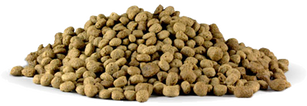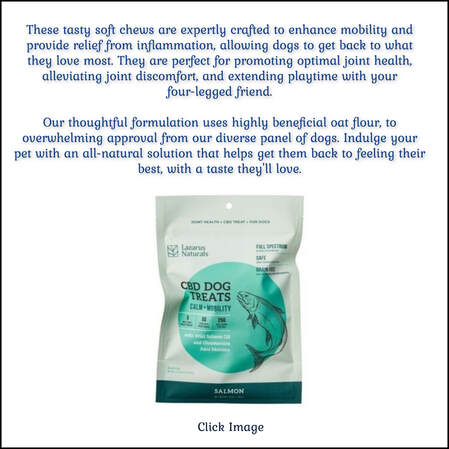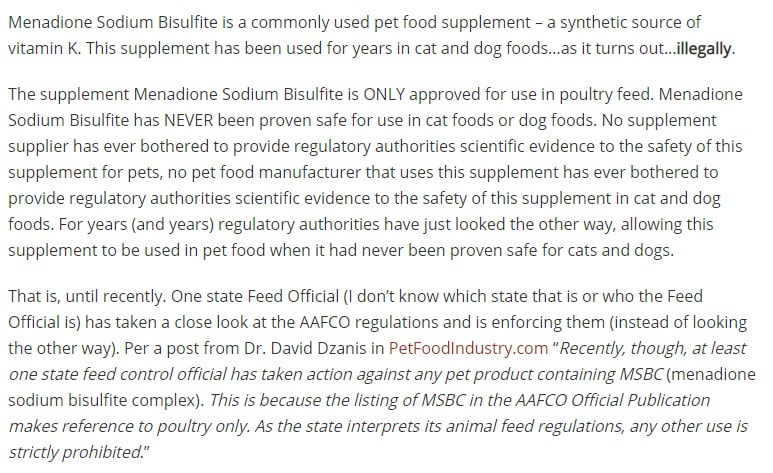
By Dog Food Advisor
Some call menadione a dog food necessity. Yet others reject it as a dangerous toxin.
So, what exactly is menadione? And why is it being used in some dog food recipes and not others?
Menadione is actually a vitamin. It’s the man-made version of an essential nutrient commonly known as vitamin K — or more precisely, vitamin K3.
However, K3 is just one of five known versions of vitamin K. The three most common ones found in dog food are:
Vitamin K1 – naturally found in green leafy vegetables
Vitamin K2 – produced by bacteria living inside a dog’s gut.
Vitamin K3 – menadione, the man-made synthetic version
Vitamins K1 and K2 are considered natural and fat soluble. So, they’re chemically ready to be used by the body just as they are.
However, vitamin K3 is synthetic. And all forms of the chemical must first undergo the cellular process of alkylation before they can be used by the body.
Some call menadione a dog food necessity. Yet others reject it as a dangerous toxin.
So, what exactly is menadione? And why is it being used in some dog food recipes and not others?
Menadione is actually a vitamin. It’s the man-made version of an essential nutrient commonly known as vitamin K — or more precisely, vitamin K3.
However, K3 is just one of five known versions of vitamin K. The three most common ones found in dog food are:
Vitamin K1 – naturally found in green leafy vegetables
Vitamin K2 – produced by bacteria living inside a dog’s gut.
Vitamin K3 – menadione, the man-made synthetic version
Vitamins K1 and K2 are considered natural and fat soluble. So, they’re chemically ready to be used by the body just as they are.
However, vitamin K3 is synthetic. And all forms of the chemical must first undergo the cellular process of alkylation before they can be used by the body.
|
So, What’s So Important About Vitamin K?
Vitamin K is used by the liver to produce clotting factors, chemical compounds used by the body to control bleeding. So, how much vitamin K does a dog need? Well, according to the National Academy of Science, not much. A dog needs very little vitamin K per serving to sustain life — only one part per million.2 What’s more, the vitamin is not even listed as a required dog food ingredient in the nutrient profiles established by the Association of American Feed Control Officials. |
Menadione — a Nutritional Necessity?
The controversy over menadione appears to be driven by two opposing views.
Supporters tend to see menadione as a necessary supplement that dog food manufacturers should include in their recipes.
Defenders favor menadione because…
Natural vitamin K may lose its potency during processing
Intestinal disease can prevent gut bacteria from making the vitamin
Not all manufacturers include green leafy vegetables in their recipes
Advocates also claim menadione should be considered safe because toxic levels are a thousand times greater than the recommended daily dose.
Or a Dangerous Toxin?
Critics see menadione as only a precursor to the vitamin’s more natural versions. They cite studies that make rather disturbing claims. They worry that menadione…
Causes toxic reactions in liver cells
Weakens the immune system
Induces allergic reactions
Causes abnormal break-down of red blood cells
One company selling menadione warns its human buyers that menadione is “toxic to kidneys, lungs, liver, mucous membranes. Repeated or prolonged exposure to the substance can produce target organ damage.”
The controversy over menadione appears to be driven by two opposing views.
Supporters tend to see menadione as a necessary supplement that dog food manufacturers should include in their recipes.
Defenders favor menadione because…
Natural vitamin K may lose its potency during processing
Intestinal disease can prevent gut bacteria from making the vitamin
Not all manufacturers include green leafy vegetables in their recipes
Advocates also claim menadione should be considered safe because toxic levels are a thousand times greater than the recommended daily dose.
Or a Dangerous Toxin?
Critics see menadione as only a precursor to the vitamin’s more natural versions. They cite studies that make rather disturbing claims. They worry that menadione…
Causes toxic reactions in liver cells
Weakens the immune system
Induces allergic reactions
Causes abnormal break-down of red blood cells
One company selling menadione warns its human buyers that menadione is “toxic to kidneys, lungs, liver, mucous membranes. Repeated or prolonged exposure to the substance can produce target organ damage.”
Banned from Use in Human Supplements
According to a peer-reviewed article published in 2004 by the Linus Pauling Institute at the Oregon State University:
“Although allergic reaction is possible, there is no known toxicity associated with high doses of the phylloquinone (vitamin K1) or menaquinone (vitamin K2) forms of vitamin K. The same is not true for synthetic menadione (vitamin K3) and its derivatives. Menadione can interfere with the function of glutathione, one of the body’s natural antioxidants, resulting in oxidative damage to cell membranes. Menadione given by injection has induced liver toxicity, jaundice, and hemolytic anemia (due to the rupture of red blood cells) in infants; therefore, menadione is no longer used for treatment of vitamin K deficiency. No tolerable upper level of intake has been established for vitamin K.”
The FDA has banned the use of menadione from over-the-counter supplements because large doses have been shown to cause these dangerous biological effects.
According to a peer-reviewed article published in 2004 by the Linus Pauling Institute at the Oregon State University:
“Although allergic reaction is possible, there is no known toxicity associated with high doses of the phylloquinone (vitamin K1) or menaquinone (vitamin K2) forms of vitamin K. The same is not true for synthetic menadione (vitamin K3) and its derivatives. Menadione can interfere with the function of glutathione, one of the body’s natural antioxidants, resulting in oxidative damage to cell membranes. Menadione given by injection has induced liver toxicity, jaundice, and hemolytic anemia (due to the rupture of red blood cells) in infants; therefore, menadione is no longer used for treatment of vitamin K deficiency. No tolerable upper level of intake has been established for vitamin K.”
The FDA has banned the use of menadione from over-the-counter supplements because large doses have been shown to cause these dangerous biological effects.
A Wolf in Sheep’s Clothing
Unfortunately, it can be difficult to spot menadione in a dog food recipe. That’s because manufacturers frequently list the vitamin in rather cryptic fashion.
Here are some common chemical names for menadione that can show up on a dog food ingredients list.
Menadione sodium bisulfate
Menadione sodium bisulfite
Menadione dimethylprimidinol sulfate
Menadione dimethylprimidinol sulfite
Menadione dimethylprimidinol bisulfite
Dimethylprimidinol sulfate
Dimethylprimidinol sulfite
Dimethylprimidinol bisulfate
Vitamin K supplement
What’s more, you may even come across menadione connected to innocent phrases on an ingredients list like… “a source of vitamin K activity”.
Unfortunately, it can be difficult to spot menadione in a dog food recipe. That’s because manufacturers frequently list the vitamin in rather cryptic fashion.
Here are some common chemical names for menadione that can show up on a dog food ingredients list.
Menadione sodium bisulfate
Menadione sodium bisulfite
Menadione dimethylprimidinol sulfate
Menadione dimethylprimidinol sulfite
Menadione dimethylprimidinol bisulfite
Dimethylprimidinol sulfate
Dimethylprimidinol sulfite
Dimethylprimidinol bisulfate
Vitamin K supplement
What’s more, you may even come across menadione connected to innocent phrases on an ingredients list like… “a source of vitamin K activity”.
The Bottom Line
So, what should you do when you find dog food recipes containing menadione?
Due to the contentious nature of menadione and because there are currently no AAFCO requirements to include the supplement in any dog food, we’d suggest shoppers avoid dog food products that contain this controversial ingredient.
Footnotes
Menadione Fact Sheet ↩
National Research Council of the National Academy of Sciences ↩
Official Publication (2008 Edition), Association of American Feed Control Officials, pp. 131-132 ↩
Aldrich PhD, Greg, “Vitamin K3 – Is It Unnecessary and Toxic?”, www.petfoodindustry.com ↩
Contreras, Sabine, http://www.DogFoodProject.com ↩
Menadione sodium bisulfite, ScienceLab.com, Houston, TX ↩
Jane Higdon, PhD, Linus Pauling Institute, Oregon State University (2004); updated Victoria Drake, Ph.D.,
Linus Pauling Institute, Oregon State University (2008), peer-reviewed by Sarah Booth, Ph.D., Director, Vitamin K Research Program, Jean Mayer USDA Human Nutrition Research Center on Aging, Tufts University, Vitamin K and the Newborn Reviewed by Dennis T. Costakos, M.D. F.A.A.P., Franciscan Skemp Healthcare-Mayo Health System, Mayo Medical School ↩
Food and Nutrition Board, Institute of Medicine. Vitamin K. Dietary Reference Intakes for Vitamin A, Vitamin K, Arsenic, Boron, Chromium, Copper, Iodine, Iron, Manganese, Molybdenum, Nickel, Silicon, Vanadium, and Zinc. Washington, D.C.: National Academy Press; 2001:162-196 ↩
Ferland G. Vitamin K. In: Bowman BA, Russell RM, eds. Present Knowledge in Nutrition. 9th ed. Volume 1. Washington, D.C.: ILSI Press; 2006:220-230 ↩
Olson RE. Vitamin K. In: Shils M, Olson JA, Shike M, Ross AC, eds. Modern Nutrition in Health and Disease. 9th ed. Baltimore: Lippincott Williams & Wilkins; 1999:363-380 ↩
Vitamin K Toxicity, Wikipedia, 4/27/2011 ↩
So, what should you do when you find dog food recipes containing menadione?
Due to the contentious nature of menadione and because there are currently no AAFCO requirements to include the supplement in any dog food, we’d suggest shoppers avoid dog food products that contain this controversial ingredient.
Footnotes
Menadione Fact Sheet ↩
National Research Council of the National Academy of Sciences ↩
Official Publication (2008 Edition), Association of American Feed Control Officials, pp. 131-132 ↩
Aldrich PhD, Greg, “Vitamin K3 – Is It Unnecessary and Toxic?”, www.petfoodindustry.com ↩
Contreras, Sabine, http://www.DogFoodProject.com ↩
Menadione sodium bisulfite, ScienceLab.com, Houston, TX ↩
Jane Higdon, PhD, Linus Pauling Institute, Oregon State University (2004); updated Victoria Drake, Ph.D.,
Linus Pauling Institute, Oregon State University (2008), peer-reviewed by Sarah Booth, Ph.D., Director, Vitamin K Research Program, Jean Mayer USDA Human Nutrition Research Center on Aging, Tufts University, Vitamin K and the Newborn Reviewed by Dennis T. Costakos, M.D. F.A.A.P., Franciscan Skemp Healthcare-Mayo Health System, Mayo Medical School ↩
Food and Nutrition Board, Institute of Medicine. Vitamin K. Dietary Reference Intakes for Vitamin A, Vitamin K, Arsenic, Boron, Chromium, Copper, Iodine, Iron, Manganese, Molybdenum, Nickel, Silicon, Vanadium, and Zinc. Washington, D.C.: National Academy Press; 2001:162-196 ↩
Ferland G. Vitamin K. In: Bowman BA, Russell RM, eds. Present Knowledge in Nutrition. 9th ed. Volume 1. Washington, D.C.: ILSI Press; 2006:220-230 ↩
Olson RE. Vitamin K. In: Shils M, Olson JA, Shike M, Ross AC, eds. Modern Nutrition in Health and Disease. 9th ed. Baltimore: Lippincott Williams & Wilkins; 1999:363-380 ↩
Vitamin K Toxicity, Wikipedia, 4/27/2011 ↩
Menadione (Vitamin K3)
One of the more obscure ingredients found in many pet foods are menadione derivatives - in the form of menadione sodium bisulfate, menadione sodium bisulfite, menadione dimethylprimidinol sulfate, menadione dimethylprimidinol sulfite or menadione dimethylpyrimidinol bisulfite, often listed as "a source of vitamin K activity" or "vitamin K supplement". Unless otherwise noted, these compounds are summarily referred to as "menadione" in this article to make it easier to read.
Watch out:
Some manufacturers leave out the "menadione" part of the above chemical names in their ingredient lists (e.g. you see only "dimethylprimidinol sulfate" listed instead of "menadione dimethylprimidinol sulfate"), and menadione does not only occur in dry and canned foods, but edible chew toys, supplements and treats as well.
Thoroughly research any item with an ingredient list that claims a "source of vitamin K", "source of vitamin K activity" or "vitamin K" in parentheses and contact the manufacturer if you have any questions.
What is it?
Menadione, also known as vitamin K3, is a synthetic version of vitamin K. The natural occurring compounds are vitamin K1 (Phylloquinone, from plant sources) and Vitamin K2 (Menaquinone, synthesized by bacteria in the digestive tract and absorbed by the body). Technically menadione isn't even a vitamin, but a precursor that is converted in the body after ingestion. Natural vitamin K is fat soluble, while menadione derivatives (pure menadione can not be processed) are water soluble and bypass the natural pathway of utilization by the body.
Why is it added to pet food?
One of the more obscure ingredients found in many pet foods are menadione derivatives - in the form of menadione sodium bisulfate, menadione sodium bisulfite, menadione dimethylprimidinol sulfate, menadione dimethylprimidinol sulfite or menadione dimethylpyrimidinol bisulfite, often listed as "a source of vitamin K activity" or "vitamin K supplement". Unless otherwise noted, these compounds are summarily referred to as "menadione" in this article to make it easier to read.
Watch out:
Some manufacturers leave out the "menadione" part of the above chemical names in their ingredient lists (e.g. you see only "dimethylprimidinol sulfate" listed instead of "menadione dimethylprimidinol sulfate"), and menadione does not only occur in dry and canned foods, but edible chew toys, supplements and treats as well.
Thoroughly research any item with an ingredient list that claims a "source of vitamin K", "source of vitamin K activity" or "vitamin K" in parentheses and contact the manufacturer if you have any questions.
What is it?
Menadione, also known as vitamin K3, is a synthetic version of vitamin K. The natural occurring compounds are vitamin K1 (Phylloquinone, from plant sources) and Vitamin K2 (Menaquinone, synthesized by bacteria in the digestive tract and absorbed by the body). Technically menadione isn't even a vitamin, but a precursor that is converted in the body after ingestion. Natural vitamin K is fat soluble, while menadione derivatives (pure menadione can not be processed) are water soluble and bypass the natural pathway of utilization by the body.
Why is it added to pet food?
Menadione is added as an inexpensive vitamin K supplement in commercial foods. The common statement as to why it is added is "to help with blood clotting", yet it is scientifically proven that the effectiveness of menadione on blood clotting is inferior. Even veterinarians will administer vitamin K1 as an antidote to dogs who have for example ingested rat poison, which causes internal bleeding.
Manufacturers who use menadione in their products also like to claim that it is "more stable" than natural vitamin K and has "more nutritional value". Not a single one of them has acknowledged the scientifically proven side effects of this substance.
It is simple to come to a conclusion about the truth in these statements when you consider that
not all pet food companies add menadione to their foods and dogs have eaten these products for years without developing deficiencies the National Research Council was not able to demonstrate a dietary requirement for vitamin K in dogs during tests when natural ingredients were fed and fish meals, liver and green plant supplements (e.g. alfalfa, kelp and other seaweed, nettle leaf, blue-green algae, spirulina) are rich sources of natural vitamin K.
Manufacturers who use menadione in their products also like to claim that it is "more stable" than natural vitamin K and has "more nutritional value". Not a single one of them has acknowledged the scientifically proven side effects of this substance.
It is simple to come to a conclusion about the truth in these statements when you consider that
not all pet food companies add menadione to their foods and dogs have eaten these products for years without developing deficiencies the National Research Council was not able to demonstrate a dietary requirement for vitamin K in dogs during tests when natural ingredients were fed and fish meals, liver and green plant supplements (e.g. alfalfa, kelp and other seaweed, nettle leaf, blue-green algae, spirulina) are rich sources of natural vitamin K.


















